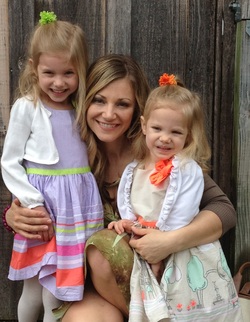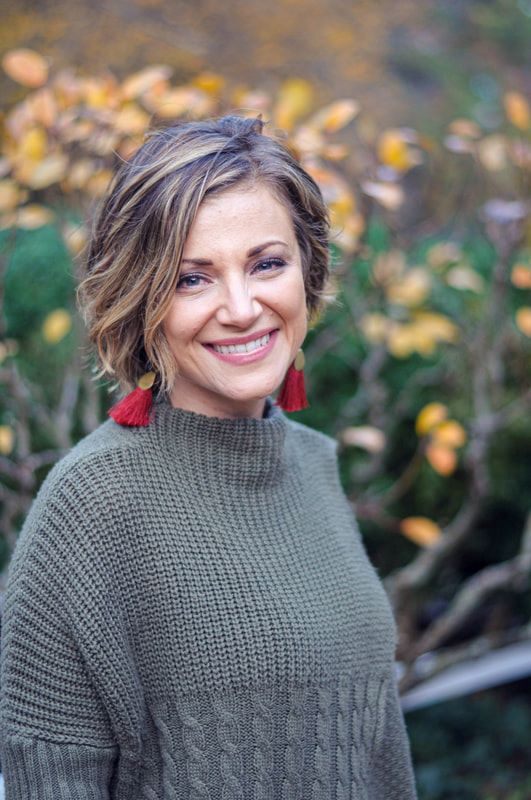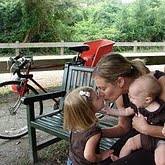
When I had my daughters—my second one in particular—I found myself giving more consideration to beauty, what comprises it, and how to talk about it. Now over thirty and the mother of two, my body doesn’t look the way it did before, and mostly I don’t give it more thought than it deserves. As I’ve aged I’ve embraced eating and exercising for health—not appearance or weight—and I am able to focus on that. But my face doesn’t look like it did before either, and that’s been much harder.
After I had Emerie, I developed melasma, hyperpigmentation of the skin often caused by hormonal changes and made worse by the sun. I’ve seen an aesthetician, had facials, and tried countless over-the-counter products and natural concoctions to get it to go away. In many women, it fades when their pregnancy is over or they are finished nursing. But mine is still going stronger than ever 2 ½ years after all that. There are more drastic steps—harsh prescriptions and laser treatments—but they are expensive and I’m not at a point that I’m ready to take them. So now I look for heavy makeup to cover it up. This condition has made me resentful, because it causes me to focus more on my appearance than I have before. Though I’ve always worn makeup, I typically favor a natural look. Now I don’t go anywhere without makeup. The idea of camping or swimming (an activity I love) makes me cringe. These splotches on my face have challenged everything I ever said about beauty and confidence and how they both come from inside.
Except they can’t. Trying to raise two little girls into strong young women is not easy, especially surrounded by messages that tell them their appearance is the most important thing. My children listen to the words I say; I know because they repeat them to unsuspecting strangers all the time. But more than that, I know they watch what I do. Lately I’ve been fielding questions about appearance. We talk about how beauty comes from who we are, not what we look like. When someone we love calls herself fat, we talk about how some people are big and some people are small and all people are valuable and worthy of love. We talk about all the things our bodies do for us and how grateful we are for them, no matter what they look like. When we see someone who looks different than we do, we talk privately about the differences and how we don’t comment on people’s appearances; we just show them kindness and love. We talk about how God made everyone, how He doesn’t make mistakes, and how everyone is beautiful.
All of this makes sense to me, especially when focused on others. But when the focus turns inward, it’s harder and maybe even more important to my children's development. As we prepared to go to the pool one day, I sighed and applied concealer to my forehead, knowing my efforts were futile. Mirabella watched me in the mirror.
“Mommy, when you put that stuff on your face, I can hardly see your spots,” she said, innocently.
I hadn’t even known she had noticed them before. “You know,” I winced, “I didn’t always have these spots. I got them after I had Emerie. Sometimes our bodies change when we have babies or get older.”
“Huh,” Mirabella said, watching every move.
“Do you think I’m still beautiful, even with the spots?” I asked her.
“Of course you are,” she replied quickly, “because you’re my mommy.”
As they often do, my children remind me that I would do well to apply the acceptance, kindness, forgiveness and love I teach to myself. This modeling might be more instrumental in the way they regard themselves than anything I could ever say.
 RSS Feed
RSS Feed


